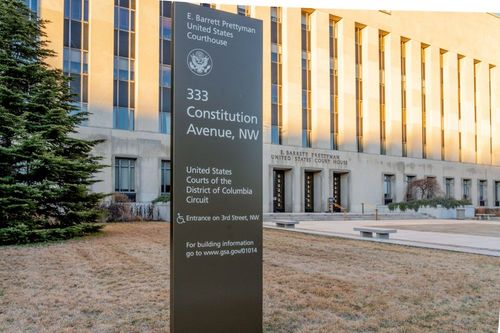Biofuels industry leads defense of RFS in US Court of Appeals

July 22, 2024
BY Growth Energy
Growth Energy, the nation’s largest biofuels trade association, and others filed two intervenor briefs in the U.S. Court of Appeals for the District of Columbia Circuit in a set of cases consolidated under Center for Biological Diversity (CBD) v. Environmental Protection Agency (EPA) et al., (Case No. 23-1177). These briefs, filed in defense of EPA’s recent RFS “Set” rule for 2023-2025 renewable volume obligations (RVOs) under the Renewable Fuel Standard (RFS), respond to challenges brought by oil industry and environmental petitioners.
“Growth Energy has always defended the RFS against false claims, and these latest challenges are no exception,” said Growth Energy CEO Emily Skor. “It’s past time for anti-agriculture groups and their allies in the fossil fuel industry to accept that the RFS is working as Congress intended — delivering on the nation’s economic, energy, and climate goals.”
Advertisement
Growth Energy’s brief in CBD v. EPA buttresses arguments presented by both EPA and an independent group of scientists, exposing the outdated and debunked research behind false claims about land use and the potential to impact endangered species. Growth Energy further notes that EPA, the National Marine Fisheries Service, and the Fish and Wildlife Service developed a robust record of evidence, above and beyond the requirements of the Endangered Species Act (ESA) showing that biofuel production is not a threat to protected species.
Growth Energy’s second brief in response to oil industry petitioners pushes back on the implausible argument that the RFS was not intended to advance the growth of renewable fuels in 2023 and beyond. As the D.C. Circuit itself has held, Congress’s express purpose in adopting the RFS was to “move the United States toward greater energy independence and security” and “to reduce greenhouse gas emissions.” Advancing the growth of renewable fuels, today and into the future, does just that, wrote Growth Energy in its defense.
Advertisement
“We’re optimistic that the courts will toss these challenges on the trash heap, alongside countless others over the last two decades,” said Skor.
Read the brief responding to environmental petitioners here. Read the brief responding to oil industry petitioners here.
Related Stories
The USDA has announced it will delay opening the first quarterly grant application window for FY 2026 REAP funding. The agency cited both an application backlog and the need to disincentivize solar projects as reasons for the delay.
CoBank’s latest quarterly research report, released July 10, highlights current uncertainty around the implementation of three biofuel policies, RFS RVOs, small refinery exemptions (SREs) and the 45Z clean fuels production tax credit.
The U.S. EPA on July 8 hosted virtual public hearing to gather input on the agency’s recently released proposed rule to set 2026 and 2027 RFS RVOs. Members of the biofuel industry were among those to offer testimony during the event.
The USDA’s Risk Management Agency is implementing multiple changes to the Camelina pilot insurance program for the 2026 and succeeding crop years. The changes will expand coverage options and provide greater flexibility for producers.
President Trump on July 4 signed the “One Big Beautiful Bill Act.” The legislation extends and updates the 45Z credit and revives a tax credit benefiting small biodiesel producers but repeals several other bioenergy-related tax incentives.
Upcoming Events










